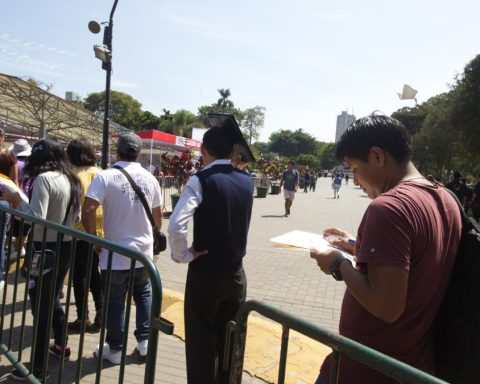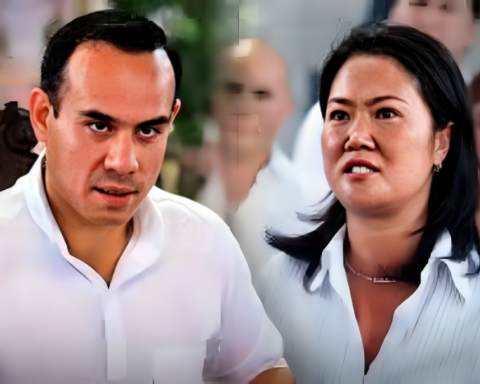Wars throughout history are preceded by myths to justify invasions and military incursions. What is happening in the conflict between Russia and Ukraine is long-standing and everything indicates that the Russian government has falsified the truth before the international community, in order to invade, first Crimea, and now eastern Ukraine.
It should be noted that Ukraine never properly represented a danger to Russia’s security. Indeed, the nuclear capacity that its maximum leader, Vladimir Putin, reiterates over and over again, would make a warlike incursion by Ukraine against Crimea (now annexed to Russia) and against Russian territory impossible.
Secondly, another recurring myth is that Ukraine’s imminent membership in NATO would also be a danger to Russia. On this point, it should be clarified that any process of accession of a country to NATO takes a certain time, and it is neither imminent nor certain that Ukraine will eventually achieve that status. In fact, if it did, it would not have to represent a danger to Russia or Crimea at all, since NATO forces work in a joint and dissuasive manner in accordance with public international law, and in no way in aggression against an independent State (such as the case of Russia). It is equally impossible for NATO – in the event that Ukraine is a member – to invade Russian territory, for the simple fact that two nuclear capabilities of similar (although not equal) military power would be exposed.
Russia’s recognition of pro-Russian breakaway states that are part of Ukraine is undoubtedly illegal interference in the internal affairs of another state. On the other hand, the recent Russian invasion of eastern Ukraine cannot be understood as sending peacekeepers, as the Russian government has maliciously made public.
According to EFE and the newspaper El País of Madrid, the UN Secretary General, António Guterres, assured this Tuesday in an appearance before the press that the Russian troops that have been sent to Ukrainian territory are not “at all” a mission of peace, as defended by Russia.
“When the troops of one country enter the territory of another country without their consent, they are not impartial peacekeepers,” Guterres said at the gates of the UN Security Council in reference to the sending of Russian troops to the separatist Ukrainian territory. of Lugansk and Donetsk ordered by Putin.
Guterres was also against the declaration of independence of these two Ukrainian regions by Putin, and pointed out that “this unilateral action is in direct conflict with the principles of the Charter of the United Nations”.
“The principles of the UN Charter are not an à la carte menu. They cannot be applied selectively,” said the organization’s top representative, who this Monday interrupted a planned trip to the Democratic Republic of the Congo to return to the UN headquarters in New York due to the rapid escalation of tensions in Ukraine.
The Portuguese diplomat insisted that the UN “fully supports the sovereignty, political independence and territorial integrity of Ukraine”, and stressed that “it is time to return to the path of dialogue and negotiations to save the Ukrainian people”.
Guterres has also confirmed that Ukraine at the time requested the deployment of a UN peace mission in Donetsk and Lugansk, but it was not carried out because Russia only accepted that it be for the protection of representatives of the Organization for Security and Cooperation in Europe.
Wars throughout history are preceded by myths to justify invasions and military incursions. What is happening in the conflict between Russia and Ukraine is long-standing and everything indicates that the Russian government has falsified the truth before the international community, in order to invade, first Crimea, and now eastern Ukraine.
It should be noted that Ukraine never properly represented a danger to Russia’s security. Indeed, the nuclear capacity that its maximum leader, Vladimir Putin, reiterates over and over again, would make a warlike incursion by Ukraine against Crimea (now annexed to Russia) and against Russian territory impossible.
Secondly, another recurring myth is that Ukraine’s imminent membership in NATO would also be a danger to Russia. On this point, it should be clarified that any process of accession of a country to NATO takes a certain time, and it is neither imminent nor certain that Ukraine will eventually achieve that status. In fact, if it did, it would not have to represent a danger to Russia or Crimea at all, since NATO forces work in a joint and dissuasive manner in accordance with public international law, and in no way in aggression against an independent State (such as the case of Russia). It is equally impossible for NATO – in the event that Ukraine is a member – to invade Russian territory, for the simple fact that two nuclear capabilities of similar (although not equal) military power would be exposed.
Russia’s recognition of pro-Russian breakaway states that are part of Ukraine is undoubtedly illegal interference in the internal affairs of another state. On the other hand, the recent Russian invasion of eastern Ukraine cannot be understood as sending peacekeepers, as the Russian government has maliciously made public.
According to EFE and the newspaper El País of Madrid, the UN Secretary General, António Guterres, assured this Tuesday in an appearance before the press that the Russian troops that have been sent to Ukrainian territory are not “at all” a mission of peace, as defended by Russia.
“When the troops of one country enter the territory of another country without their consent, they are not impartial peacekeepers,” Guterres said at the gates of the UN Security Council in reference to the sending of Russian troops to the separatist Ukrainian territory. of Lugansk and Donetsk ordered by Putin.
Guterres was also against the declaration of independence of these two Ukrainian regions by Putin, and pointed out that “this unilateral action is in direct conflict with the principles of the Charter of the United Nations”.
“The principles of the UN Charter are not an à la carte menu. They cannot be applied selectively,” said the organization’s top representative, who this Monday interrupted a planned trip to the Democratic Republic of the Congo to return to the UN headquarters in New York due to the rapid escalation of tensions in Ukraine.
The Portuguese diplomat insisted that the UN “fully supports the sovereignty, political independence and territorial integrity of Ukraine”, and stressed that “it is time to return to the path of dialogue and negotiations to save the Ukrainian people”.
Guterres has also confirmed that Ukraine at the time requested the deployment of a UN peace mission in Donetsk and Lugansk, but it was not carried out because Russia only accepted that it be for the protection of representatives of the Organization for Security and Cooperation in Europe.
;
















